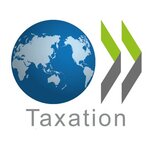|
On January 31, 2020, the Inclusive Framework on BEPS issued a statement reaffirming its commitment to reaching a consensus-based long-term solution to the tax challenges arising from the digitalisation of the economy by the end of 2020.
The Inclusive Framework on BEPS, which groups 137 countries and jurisdictions on an equal footing for multilateral negotiation of international tax rules, decided during its January 29-30 meeting to move ahead with a two-pillar negotiation to address the tax challenges of digitalisation. Participants agreed to pursue the negotiation of new rules on where tax should be paid ("nexus" rules) and on what portion of profits they should be taxed ("profit allocation" rules), on the basis of a "Unified Approach" on Pillar One, to ensure that MNEs conducting sustained and significant business in places where they may not have a physical presence can be taxed in such jurisdictions. The Statement by the Inclusive Framework on BEPS takes note of a proposal to implement Pillar One on a "safe harbour" basis, as proposed in a December 3, 2019, letter from US Treasury Secretary Stephen Mnuchin to OECD Secretary-General Angel Gurría. It recognises that many Inclusive Framework members have expressed concerns about the proposed "safe harbour" approach. The Statement also highlights other critical policy issues that must be agreed under Pillar One before a decision can be taken. The "safe harbour" issue is included in the list of remaining work, but a final decision on this issue will be deferred until the architecture of Pillar One has been agreed upon, the OECD noted. The Inclusive Framework also welcomed the significant progress made on the technical design of Pillar Two, which aims to address remaining BEPS issues and ensure that international businesses pay a minimum level of tax. They noted the further work that needs to be done on Pillar Two. See Statement Comments are closed.
|
Archives
March 2024
|
COMTAX ABC/o Ekonomiforetaget Baehring Dahl AB
Berga Alle 3 25452 Helsingborg Sweden |
CONTACTTel.: +46 46 590 07 70
E-mail: support(@)comtaxit.com |
INFORMATION |
© COPYRIGHT 1985 - 2024 COMTAX AB. ALL RIGHTS RESERVED.

